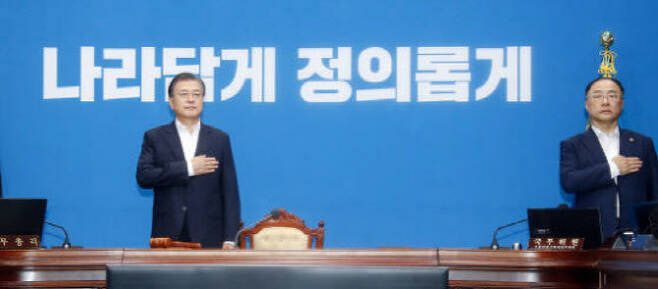|
On the morning of the 6th, the government plans to hold a meeting of related ministers (green room meeting) at the government building in Seoul to diagnose the real estate market situation and discuss housing stability measures. The meeting will be attended by Minister of Land, Infrastructure and Transport Byeon Chang-heum, Gu Yoon-cheol, head of the Office of State Affairs Coordination, and Lee Ho-seung, chief economic officer of the Blue House.
Recently, as all parts of the country have been grouped into regulated areas, the price of homes in Seoul has jumped. According to the nationwide weekly apartment price trend in the fourth week of last month (as of December 28) announced by the Korea Real Estate Agency, the weekly apartment price increase rate in the metropolitan area was 0.23% compared to the previous week, and in Seoul 0.06%.
The metropolitan area was the highest since the last week of June last year, and Seoul was the highest since the third week of July, after the July 10 measures. The sale price of Gangnam 4 district reached the highest level in about five months, raising the rate of increase in apartment prices in Seoul.
In particular, last year, national house prices rose the most in nine years. According to the Real Estate Agency, the prices of houses and apartments nationwide rose 5.36% and 7.57%, respectively, compared to the previous year. Both are the highest since 2011. Last year, the nationwide housing rental price rose 4.61%, the highest in five years. Last year, the national housing rent rose 1.09% year-on-year, the first increase since 2016 when related annual statistics were prepared.
As the house prices and the rent and the rent were upset, the government decided to start with stabilization of the real estate market in the new year. President Moon Jae-in said at the New Year’s first cabinet meeting on the 5th that “residential stability is also an important public welfare task.” “We will not hesitate to establish additional necessary measures while maintaining the government’s policy of blocking speculation demand, expanding housing supply, and strengthening tenant protection. Above all, we will put emphasis on quickly devising innovative and diverse housing supply plans.”
Earlier, Deputy Prime Minister Hong Nam-ki also said at the opening ceremony of the Ministry of Information and Transportation on the 4th, “In relation to the real estate market, we must put all our policy capabilities into the market from the beginning of the year to ensure that the market is stabilized.” Deputy Prime Minister Hong emphasized that at a meeting of ministers related to the real estate market inspection in August, “We will continue to push forward the real estate policy with the determination to’absolutely end the disagreement on real estate this time.”
The government is conceiving a plan to secure public leases through public development while granting incentives through the Seoul subway station area ratio or deregulation of urban planning. However, it is unclear how much of such measures alone can solve the scarcity of supply. Park Won-gap, chief real estate expert at KB Kookmin Bank, pointed out that “the key is whether the quantity of goods expected in the region desired by consumers through measures can be supplied at a rapid pace.”

